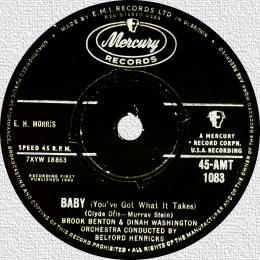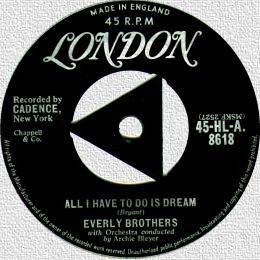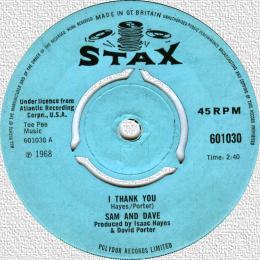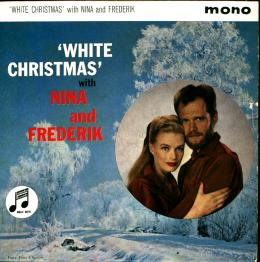
|
1960 | |
|
||
|
This record and its follow-up, 'Rockin' Good Way (To Mess Around And Fall In Love)', didn't achieve the same level of UK success as in the USA, although both artists were to enjoy a period of British chart presence as solo performers. On the evidence of this recording you might believe that the partnership was one made in heaven and destined for further success. Sadly, reality was different because the two artists were too unsuited temperamentally to stay together for long. Dinah Washington's tireless quest for perfection and Brook Benton's relaxed, sometimes casual, approach to his craft were incompatible. It had been intended that they should stay together to record an album. |
||
|
However the couple parted before the project could be completed. An LP was eventually released ('The Two Of Us'), but this had to be finished by adding tracks of their individual recordings. Brook Benton's warm soft vocals found greatest popularity in the early 1960s when he had a string of chart successes including 'So Many Ways' and the 'Boll Weevil Song'. He also had further international success during the early 1970s with 'Rainy Night In Georgia', regarded by many as a classic of the era. His successful work also included songwriting which he did in the company of Clyde Otis and Belford Henricks; the latter of whom conducted the orchestra on the featured record. Dinah Washington was a versatile artist who began singing in church as a choralist in Chicago where she grew up. Her professional output included R&B, blues, and even soul. After a period singing with the Lionel Hampton band she left to record several R&B hits including 'Wheel Of Fortune' which was also a hit for Kay Starr. Her later material concentrated on 'standards' and popular 'MOR' material aimed towards white audiences which she usually recorded in association with jazz orchestras. However, the record featured here is her only million-seller. |
||



